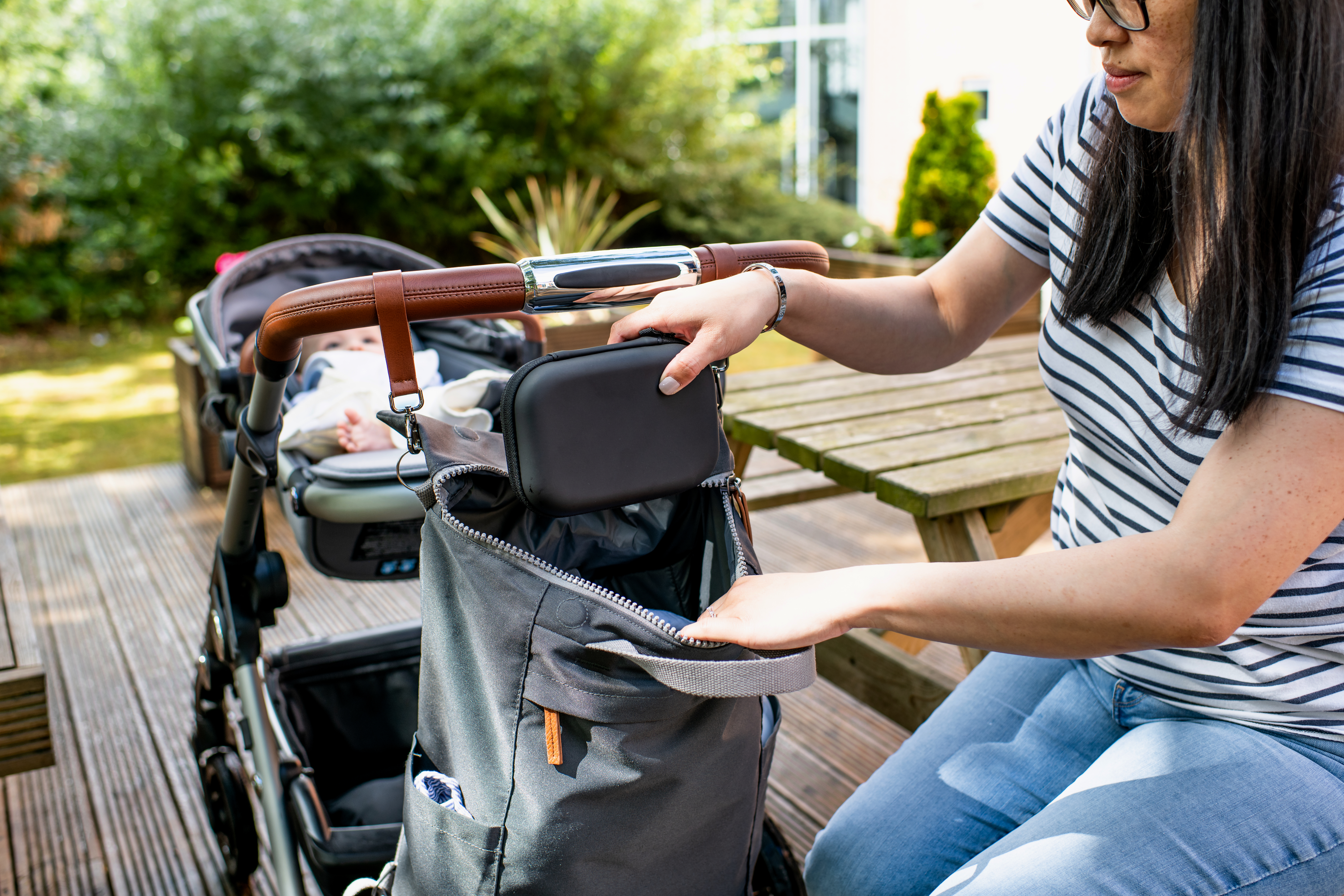Growing babies need to feed regularly. But because a ‘normal’ feeding schedule can vary greatly from one baby to the next, many parents worry about the possibility of overfeeding their little one.
Don’t worry though, overfeeding is rare and can be easily prevented. Let’s run through common overfeeding concerns for babies who breastfeed and bottle feed, and cover what you can do to avoid overfeeding your baby.
Can you overfeed a newborn?
During the early days, it may seem like your newborn baby is feeding a lot, but don’t worry, this is completely normal!
A newborn baby’s stomach is only the size of a cherry and can hold around five to seven milliliters, so they will need to feed little and often at first.
- If they’re breastfed, a newborn should feed at least eight to 12 times every 24 hours during their first few weeks – but this can vary from one baby to the next.
- If they’re bottle-fed, newborns need small amounts of milk to begin with. By the end of their first week, most will require approximately 150ml to 200ml per kilo of their weight every 24 hours, until they’re around six months old.
Can you overfeed a breastfed baby?
No, if your baby is breastfed, it’s not possible to overfeed them. Although it may seem like your baby is feeding a lot, this is simply because their tummy is very small at first and breast milk is easily digested.
Breastfeeding isn’t just about your baby getting enough breast milk: they also feed or suckle for comfort and reassurance. So, you shouldn’t worry about feeding them whenever either of you wants to – whether that’s because they’re hungry, your breasts feel full and engorged, or you just want to have some skin-to-skin contact and a cuddle.
A breastfed baby who’s fed whenever they’re hungry or in need of the comfort of your breast won’t become demanding or be ‘spoiled’. The truth is, all breastfed little ones are different, and you’ll be able to work out your tailor-made feeding pattern together.
Signs that a breastfed baby is full and has decided not to drink any more milk include detaching themselves from your breast or falling asleep at your breast. These behaviors show that they’re able to recognise what being full feels like, so they’re unlikely to overfeed.
Can you overfeed a bottle-fed baby?
Yes, it can be easier to accidentally overfeed a bottled-fed baby. This is because it’s harder for them to control the speed that their milk flows through the bottle’s teat as they feed.
Bottle-fed babies will usually refuse a bottle or push the teat away from their mouth when they feel full and have fed for long enough. So, don’t be tempted to unintentionally pressure them and never force your baby to finish a bottle if they don’t want to.
It’s natural to worry about how much milk your baby takes while bottle feeding, but you can usually rely on their weight gain growth charts and the frequency of wet and dirty nappies to reassure you that they’re getting enough milk.
Why should you avoid overfeeding babies?
Although uncommon, overfeeding a baby can cause…
- Stomach problems such as trapped wind, cramps, and sloppy or foul-smelling poos.
- Belching and vomiting.
- Irritability and sleep problems because they feel uncomfortable, and their stomach is too full.
- An increased risk of obesity later in life.
In addition, ignoring the signs that your baby gives you to show that they’re full can make mealtimes stressful for everyone involved. It could also lead to unhealthy mealtime habits and a negative association with food.
How to avoid overfeeding a baby and spotting overfed baby symptoms
To avoid overfeeding your little one, it’s better to offer them less milk during a feed, rather than more. That way, you can always give them a little extra if needed and they have time to realise when they’re feeling full and satisfied.
You should practice responsive or paced feeding and stick to feeding them when they show signs that they want to feed. These signs are known as hunger cues or signals and include…
- Becoming restless.
- Sucking their fist or fingers.
- Making murmuring sounds.
- Turning their head and opening their mouth – this is also known as ‘rooting.’
- Flexing their arms and legs.
- Crying – this is a late hunger cue.
Likewise, you should avoid pressuring your baby to feed when they’re not hungry. Keep an eye out for signals your baby will give to let you know that they’re full. These include…
- Starting and stopping feeding often.
- Unlatching while breastfeeding.
- Spitting out or ignoring their bottle or your breast.
- Slowing down or falling asleep while feeding.
- Fidgeting or getting distracted easily.
- Crying while feeding.
- Closing their mouth and turning away when you offer them their bottle or your breast.
If you have any questions or concerns about your baby’s feeding schedule or weight gain, don’t hesitate to speak to your doctor or health visitor for advice and support.


